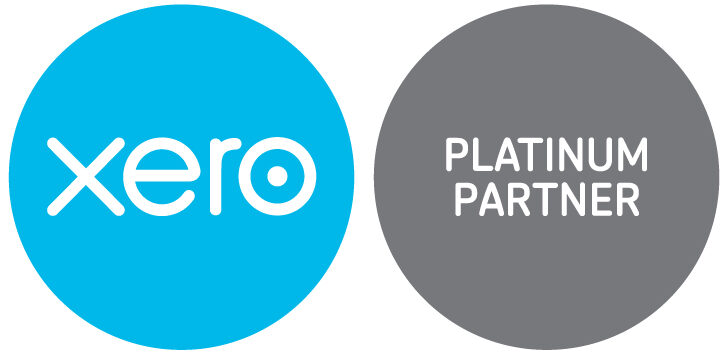A year ago, Rishi Sunak delivered his first Budget just as the pandemic began to take hold. While his £30 billion package sounded significant, it’s a sum that has paled into insignificance over the last 12 months as the Chancellor has spent £280 billion shoring up the UK economy.
As the Chancellor acknowledged in his speech: “The damage coronavirus has done to our economy has been acute”.
With a number of calculated leaks over the past few days, it is perhaps not unexpected that there were limited surprises in today’s announcements.
So, who are the winners and losers of the 2021 Budget?
Winners
Retail, leisure, and hospitality businesses
It’s been a tough year for many sectors and retail, leisure, and hospitality businesses have been particularly hard hit.
The Chancellor announced £5 billion in government grants to businesses in these sectors. To help them reopen, non-essential retail businesses will receive grants of up to £6,000 per premises, while hospitality and leisure businesses will receive grants of up to £18,000.
Sunak also confirmed an extension to the temporary 100% business rates relief for hospitality, retail, and leisure until the end of June. He will then discount business rates by two-thirds, up to a value of £2 million for closed businesses, with a lower cap for those who have been able to stay open.
The Chancellor also extended the temporary VAT reduction in these sectors from 20% to 5% until 30 September. There will then be an interim 12.5% VAT rate until April 2021.
Alcohol duties were frozen for the second year in a row.
Businesses with staff on furlough
In a pre-Budget statement, Sunak summed up his Budget: “We’re using the full measure of our fiscal firepower to protect the jobs and livelihoods of the British people.”
Sunak most clearly demonstrated this commitment by announcing the government will extend the furlough scheme until the end of September 2021 – longer than businesses expected.
The government will cover the wages for workers who have been put on leave due to the pandemic (up to a maximum of £2,500 a month) at the following rates:
- 80% until the end of June 2021
- 70% in July 2021
- 60% in August and September 2021
Employers will have to pay the difference to 80% – so 10% of wages in July, and 20% in August and September.
This is a major commitment by the Treasury as the scheme costs around £5 billion each month.
Self-employed workers (including the recently self-employed)
The fourth Self-Employed Income Support Scheme (SEISS) grant for February, March and April 2021 will cover 80% of monthly profits up to a maximum of £2,500 a month.
People who became self-employed in the 2019/20 tax year and have filed a 2019/20 tax return before midnight last night, will also be eligible for the fourth and fifth grants, helping an additional 600,000 self-employed people.
A fifth grant, covering May, June and July 2021 will also be available.
- For self-employed workers whose turnover has fallen by 30% or more, the grant will continue to pay 80% of monthly profits up to £2,500 a month.
- For self-employed workers whose turnover has fallen by less than 30%, the grant will pay 30% of monthly profits up to £2,500 a month.
Businesses looking to invest
After announcing a hike in business tax rates (see below), the Chancellor announced what he called the “biggest business tax cut in modern British history”.
A new “Super Deduction” will come into force for two years. This means that, when companies invest in qualifying plant and machinery, they can reduce their tax bill by 130% of the cost of the investment.
It is hoped that this will boost business investment by 10%.
Losers
Medium-sized and large businesses
The first step to repairing the public finances came in the form of a Corporation Tax rise which will come into force in April 2023.
From April 2023, the Corporation Tax rate will rise to 25%. Despite a significant six-point increase in the rate, the Chancellor argued that the UK will still boast lower Corporation Tax rates than the likes of Germany, Japan, the US, and France.
Small businesses – those with profits less than £50,000 – will benefit from a “small profits rate” of 19%. This means 1.4 million businesses will be unaffected and pay the same rate.
There will be a taper for profits above £50,000, so the 25% Corporation Tax rate will only apply to businesses who make profits of £250,000 or more. The number of associated companies will again become relevant when calculating the amount of tax a company is required to pay.
Income Tax payers
While the Chancellor announced no Income Tax, VAT or National Insurance rises, the decision to freeze the Personal Allowance at £12,570 and the higher-rate tax threshold at £50,270 from 2021/22 to 2026 equates to, essentially, stealth taxes.
A freeze drags more people into paying Income Tax and will also push 1.6 million people into the higher tax bracket by 2024, raising around £6 billion for the Exchequer.
Pension savers
In an expected move the Chancellor announced he was freezing the Lifetime Allowance – the amount an individual can save into a pension before incurring tax charges. The allowance will remain at £1,073,100 until 2026.
This is another stealth tax, as it means that anyone whose pension savings are above this amount could face a levy of up to 55% on any additional lump sums or income taken from their pension pot.
Wealthier individuals and families
Just as the Chancellor froze the pension Lifetime Allowance, he also announced a freeze in the Inheritance Tax (IHT) threshold and the Capital Gains Tax (CGT) annual exemption until April 2026.
The IHT threshold will remain at £325,000 with the “residence nil-rate band” at £175,000.
The annual Capital Gains Tax exemption will remain at £12,300 for five years.
As the value of assets such as house prices and investments rises over the next five years, this freeze will see more people face a CGT or IHT liability, raising additional revenue for the Exchequer.
Get in touch
If you want to chat about how the 2021 Budget affects you, please get in touch with Nick Donohue, RPG’s Head of Tax email NDonohue@rpg.co.uk







 Production
Production